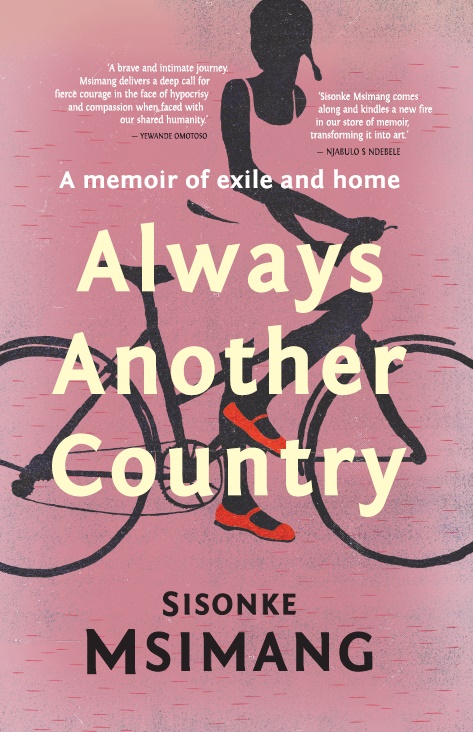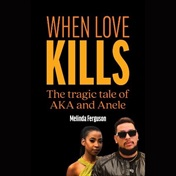
Sisonke Msimang does not mince words, nor does she suffer fools.
If you've read any of her writings, you'll know that she can either thoughtfully tear you apart in a 1 000-word essay, or cut you to size in a sharply worded 140-character tweet.
The 43-year old writer (and now author) is an outspoken African feminist and is among those progressive South African commentators who are hell-bent on getting the rest of the population to re-evaluate and discard any backward views they may have.
Her first book, Always Another Country, was released in stores nationwide this week.
It is, in short, the story of her life – growing up in exile in neighbouring Zambia and Kenya, followed by a stint in Canada, studying in the US, and finally returning to Mandela’s new South Africa.
In Zambia, at the age of seven, she experiences sexual violence at the hands of a gardener. In Canada she is called an "African monkey".
It is an intensely personal story, and yet it is the story of many South Africans: the search for home and belonging in the face of gross injustice.
"I think South Africa has so many stories, and apartheid is this thing that ties us all together – we all may have had our own experience of it, but it wraps us together in a way that other countries don't have," says Msimang.
"Because so many people have taken up the mantle of telling our story as a country, and that authoritative way of telling a story is often a thing that men do, I deliberately did not want to do that. I think when you write about just yourself and your feelings, people relate to the emotions. And because apartheid forms the architecture that ties it all together, South Africans are able to relate to it."
She was also conscious of the fact that she had not yet written a book, and wanted to make her mark as an author – not just a writer. So she wrote what she knew best: her own story.
Part of that story is about her anger at South Africa, white people and her parents – first for the injustice black South Africans had to face, and later, for the slow pace at which this was being addressed. When she finally comes back to South Africa, it's about her frustration about becoming part of the very system she loathed – getting married to a white man and setting up house in a middle class neighbourhood, where she was shielded from the harsh reality millions of black people had to deal with in the new South Africa.
"Part of what I wanted to do by talking about that anger was to be critical of myself," she explains.
"When I was young I was an insufferable, middle class brat. I lacked the grace that is the only thing that will move this country forward. Over the years, I learnt that to be right is not the only thing that will move this country forward. In fact, if to be right without having compassion and humanity and trying to figure out what it means to be right and hold the space for that person with whom you disagree… if you can't do that, then what's the point of being right?"
Msimang's book comes at a time when South Africans are having robust conversations about race, gender, restitution and reconciliation. This she finds heartening.
"I think what happened in 1994 with Madiba and Archbishop Tutu and the TRC and the whole notion of the 'rainbow nation' was that it was an ideology, and it had to follow a very particular path: First you say sorry, then you tell the truth, then we forgive you. And, of course, life is more complicated than that. What happened to the black people who were angry and didn't want to forgive? What happened to the white people who weren't sorry? Those people didn't go away. And here we are with all of them now and this is the conversation we are finally having, delayed by a decade and a half."
It is, rightly so, a conversation being carried and driven to a large extent by the youth of the country.
"There's a new generation of white kids who are able to hold the notion of privilege and whiteness without the defensiveness. And then there are obviously lots of white kids in that group who continue to be defensive and worry about what their place is going to be in the new society. And then there's a new generation of black kids who are completely disinterested in the notion of respectability – don't care what white people think. I find that robust and healthy.
"As a country, we are maturing because thing didn't fall apart, partly because our leaders held it together so tightly. So now it is absolutely appropriate to be more robust. We can be rougher with each other, without falling apart.
"Democracy isn't going to fade away because somebody says you're racist. We have to be able to trust one another more with these conversations, and this is a time to have it."




 Publications
Publications
 Partners
Partners















